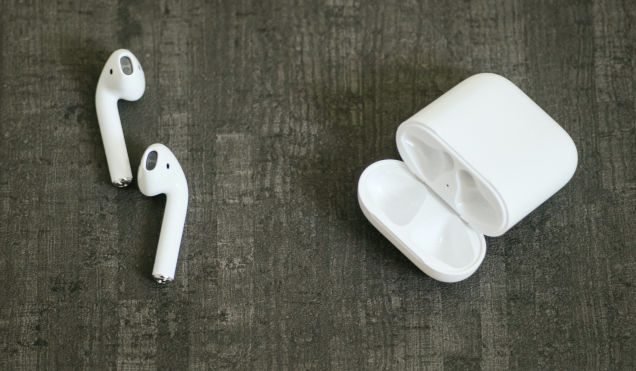The AirPods are prepared for a future without (hardly) competition

The AirPods look almost like old-school Apple products. That which amazed us with developments in which the bottom was above the form and in which from the first moment everything in the product made sense.
Those wireless headphones have become a great silent triumph of an Apple that has remained apparently alone in this area. We are already talking about new and promising versions that a priori will leave even more behind some rivals who continue to make no noise. Where are the alternatives?
Alternatives exist, although it may not seem so
We could see some at the Mobile World Congress that begins this weekend, but the truth is that those who have risked to enter the segment of wireless headphones have done so hesitantly.
We have options like Bragi and its 'The Headphone', the Samsung Gear IconX, the Sony WF-1000X and slightly less known proposals such as the Motorola VerveOnes + or the Jabra Elite Sports Earbuds.
Although some of them try to offer quality alternatives to AirPods, which in case some do not know, are compatible with Android phones, it is difficult to fight against that natural symbiosis between the products of the Apple ecosystem.
If one has an iPhone or an iPad and looks for wireless headphones, AirPods are the natural bet, not because of the sound (decent but not spectacular, according to our analysis) but because of that magical pairing that makes the interaction with this accessory fantastic.
The disappointment is called Google Pixel Buds
Android devices do not have competition in this regard, and it is probably difficult for them to achieve that symbiosis that Apple can boast of. What they can, of course, is to compete in additional technologies or sound quality.
Here we have the clearest proposal by some Google Pixel Buds that, as in the case of their own Pixel phones, are an erratic product.

They are not available in Spain and other countries, and their technological commitment has been disappointing: that demonstration in which that prodigious machine translation came into action in real time seems to be much greener than what we wanted to confess in Google, and for many the product needs a twist ... or two
Do not give up the minijack should not stop the development of alternatives to AirPod
While we lament the disappointment of the Pixel Buds on Apple they seem to be working hard on a second version of the AirPods. Maybe in two, in fact, because as our colleagues in Applesfera pointed out, there are rumors that we have two variants on the way.

The first, which will appear this year, would come with the Apple W2 chip, similar to the new Apple Watch and that among other things would support active voice listening ("Hey Siri"), which would always be available in these headphones instead of having to touch the headset to activate the voice assistant.
The second version that supposedly Apple would be working on, and that would arrive in 2019, would have another interesting novelty: the resistance to water, which would probably actually be resistance to splashes and rain, no immersion.
Both improvements are relevant and reinforce that commitment to the wireless audio of an Apple that seems determined to make music an integral part of its ecosystem.
Other manufacturers continue to defend that headphone jack that Apple got rid of on the iPhone 7/7 Plus. It is a laudable defense that allows us to continue using the wide range of headphones with that connector, but keeping the bet for the present (and the past) should not eliminate the bet for an alternative of present (and future, it seems).
Qualcomm is positioned with TrueWireless
Here are technological options that look promising. One of them is the TrueWireless technology present in the Qualcomm QCC5100 SoC. These chips are an evolution of the CSR8675 from Qualcomm itself that we find, surprise surprise, in the Pixel Buds. The new QCC5100 offers more process power and support for external sensors, in addition to being 65% more efficient.
That would allow Qualcomm to offer wireless headphones that would allow 25% more battery power than "the most popular wireless headphones on the market today" (ie AirPods).
Among its options is the TrueWireless Stereo Plus mode that allows phones to connect directly to both headphones at the same time instead of first to one and then establish the connection with the other. That, they say in Qualcomm, would allow to simplify the pairing between phone and headphones and reduce latencies.
Or what is the same, to have a system analogous to the AirPods when it comes to enjoying that wireless audio experience. Now, of course, it remains to be seen what Google does to advance in this area in Android, and what Google itself and the manufacturers of headphones do so that the world of wireless headphones does not escape them as it is already doing (or has done in a definitive way) that of smart watches.
Bearing in mind that these headphones increasingly pose a future in which attendees will be an integral part of their options, it seems impossible that Google - whose assistant is clearly more capable than Siri - do not make an extra effort to advance in this field.
U r doing good job. thumbs up.. i followed u..
thank you friend I will follow you the same to see your publications
welcome.. :)